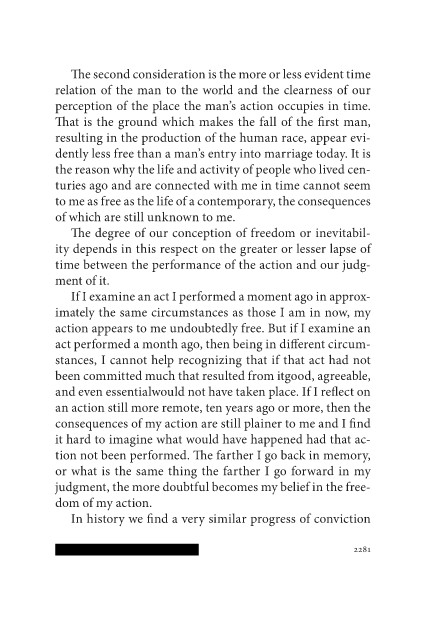Page 2281 - war-and-peace
P. 2281
The second consideration is the more or less evident time
relation of the man to the world and the clearness of our
perception of the place the man’s action occupies in time.
That is the ground which makes the fall of the first man,
resulting in the production of the human race, appear evi-
dently less free than a man’s entry into marriage today. It is
the reason why the life and activity of people who lived cen-
turies ago and are connected with me in time cannot seem
to me as free as the life of a contemporary, the consequences
of which are still unknown to me.
The degree of our conception of freedom or inevitabil-
ity depends in this respect on the greater or lesser lapse of
time between the performance of the action and our judg-
ment of it.
If I examine an act I performed a moment ago in approx-
imately the same circumstances as those I am in now, my
action appears to me undoubtedly free. But if I examine an
act performed a month ago, then being in different circum-
stances, I cannot help recognizing that if that act had not
been committed much that resulted from itgood, agreeable,
and even essentialwould not have taken place. If I reflect on
an action still more remote, ten years ago or more, then the
consequences of my action are still plainer to me and I find
it hard to imagine what would have happened had that ac-
tion not been performed. The farther I go back in memory,
or what is the same thing the farther I go forward in my
judgment, the more doubtful becomes my belief in the free-
dom of my action.
In history we find a very similar progress of conviction
2281

